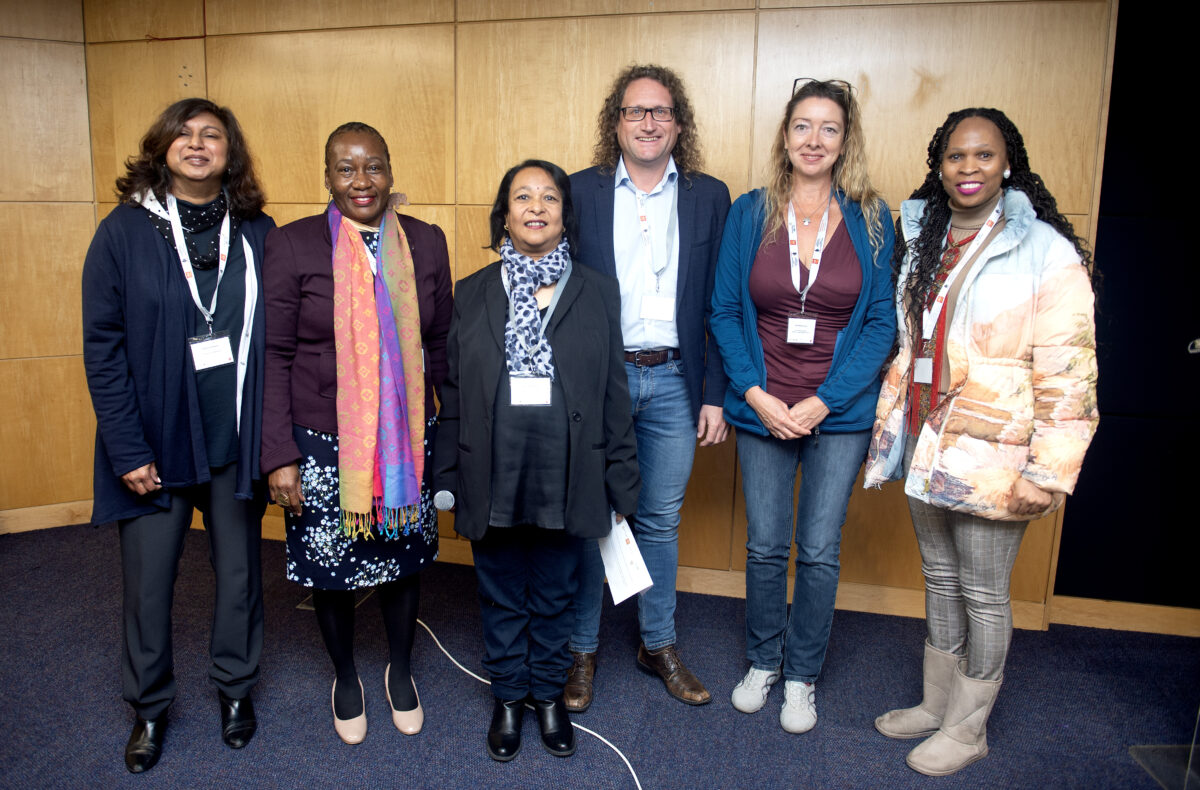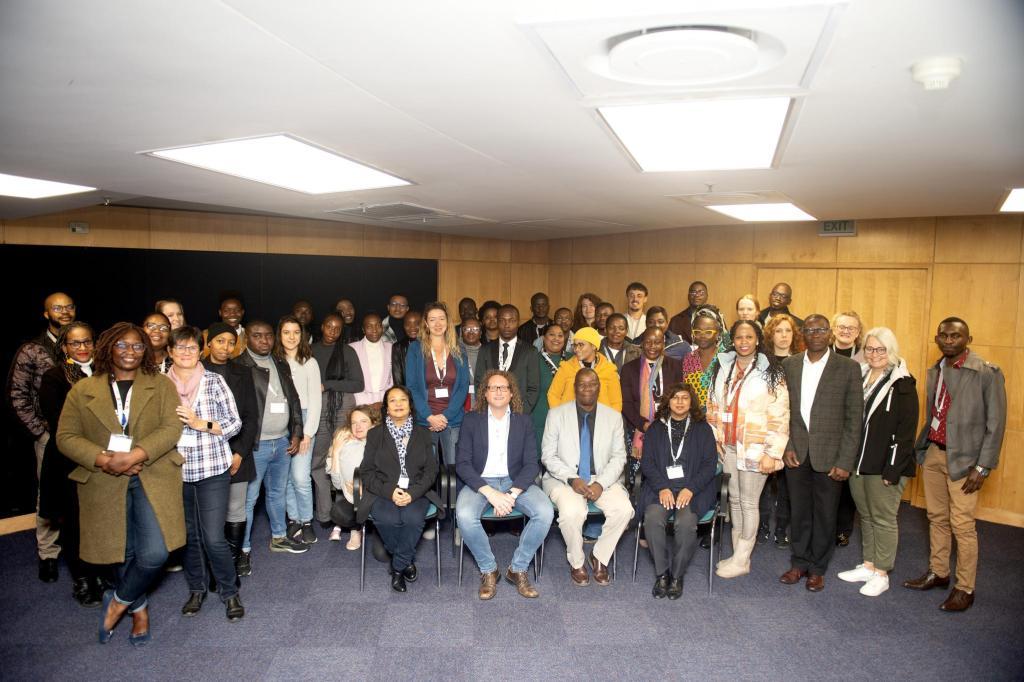international conference
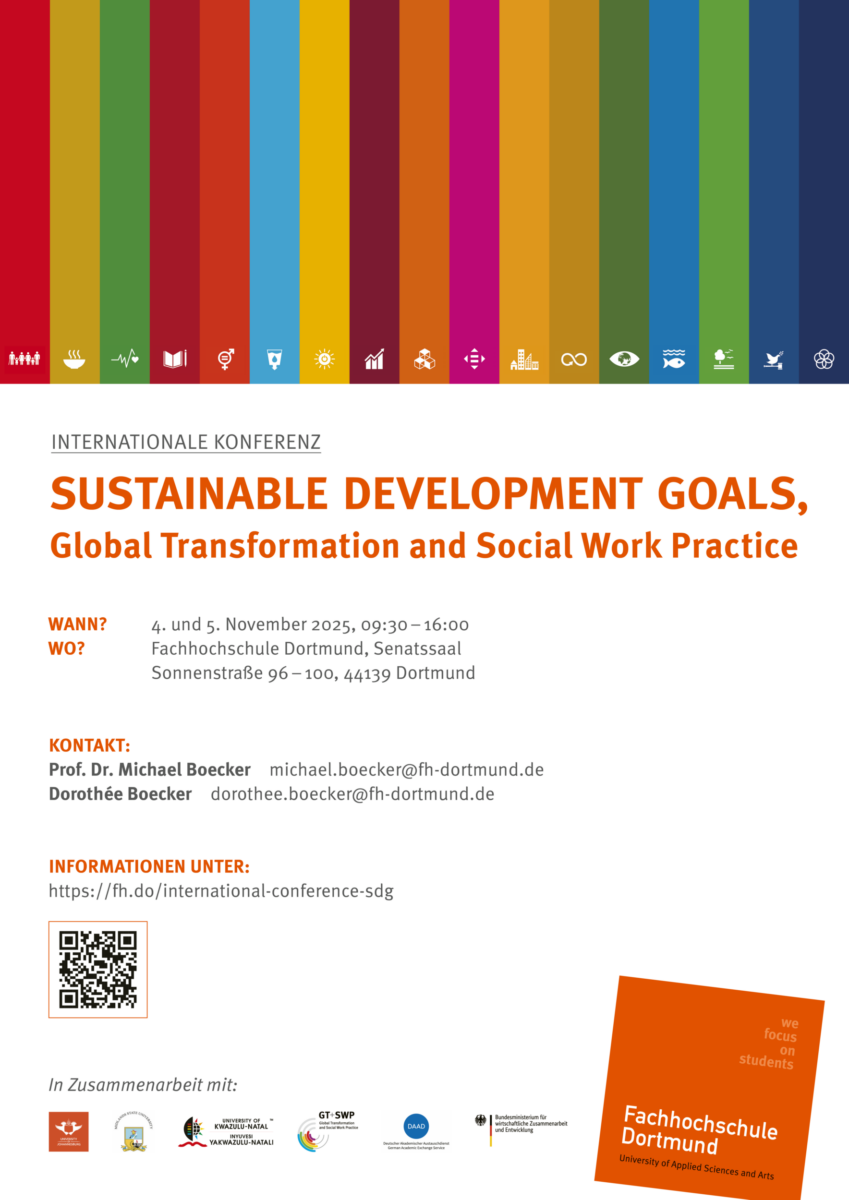
Influencing the de-colonisation of social work and social development through african indigenous knowledge systems
African Indigenous knowledge can be defined as the knowledge that an indigenous community gains over generations of living in a particular environment. This includes all forms of knowledges, technologies, practises, values, and beliefs that enable the community to achieve stable livelihoods in their environment. African Indigenous knowledge systems (AIKS) help to shape and define societies’ existence and provides the foundation for African nation states beliefs and traditional practises. However, there remains limited emphasis on the body of knowledge around how to harness the knowledge systems. Indigenous knowledge systems are a key enabler of sustainable development for Global South countries and all indigenous peoples. Global South countries will not be able to realise their development goals without embracing indigenous knowledge systems. Indeed, local knowledge and approaches to social development have already yielded positive results in terms of tackling poverty and mitigating adverse impacts of climate change. These examples showcase what is possible when local contexts and thinking inform social development policy and practice.
Foregrounding local knowledge is also aligned with the decolonisation of knowledge and approaches to social development thinking and social work practice. Decolonisation is critical, relevant and provides a comprehensive understanding to the multiverse of the humanity of Africans in fully appreciating social development. The effort to reclaim as well as assert the sovereign power of Africans to self-determine in the aftermath of the invention of race, transatlantic slavery, and colonialism in its mutating forms, is imperative for social development (Ngwena, 2022).
The premise of decolonisation is one of critiquing existing power structures and dominant culture at multiple levels and IKS provide a basis for this interrogation.
We are excited to showcase how indigenous and local knowledge systems are disrupting dominant theories and practice in social development and social work, whilst working towards achieving the 17 Sustainable Development Goals.
Through a partnership of four Universities namely, Midlands State University, University of Applied Science and Arts Dortmund, theUniversity of Johannesburg, and the University of KwaZulu Natal; and in partnership with the International Consortium on Social Development (ICSD) Africa Branch, the symposium will bring together social work practitioners, social development practitioners, policy makers, PhD and Masters students to showcase and critically engage with how indigenous and local knowledge systems can inform and influence efforts to achieve the SDGs.
The Objectives of the symposium are:
Symposium outcomes
At the conclusion of the symposium, it is anticipated that the participants will have:
Participants
Participants will include students, social work and social development scholars and practitioners from across the continent and globe.
Please note that although the DAAD partnership is a social work focused partnership, the joint symposium with ICSD provides the opportunity to strengthen and build new partnerships in the continent of Africa. In addition, through participation in the symposium, we hope to provide the opportunity to boost the commitment and confidence of social workers and social development practitioners and to make a stronger contribution to Afrocentric practices and policy development. Abstracts are therefore invited from a wide range of disciplines including agriculture, development studies, economics, education, health, psychology, sociology, and social work as key stakeholders in the social development sector.
Cross cutting themes are climate justice, gender equality, Environmental justice, Sustainability and Governance (ESG)
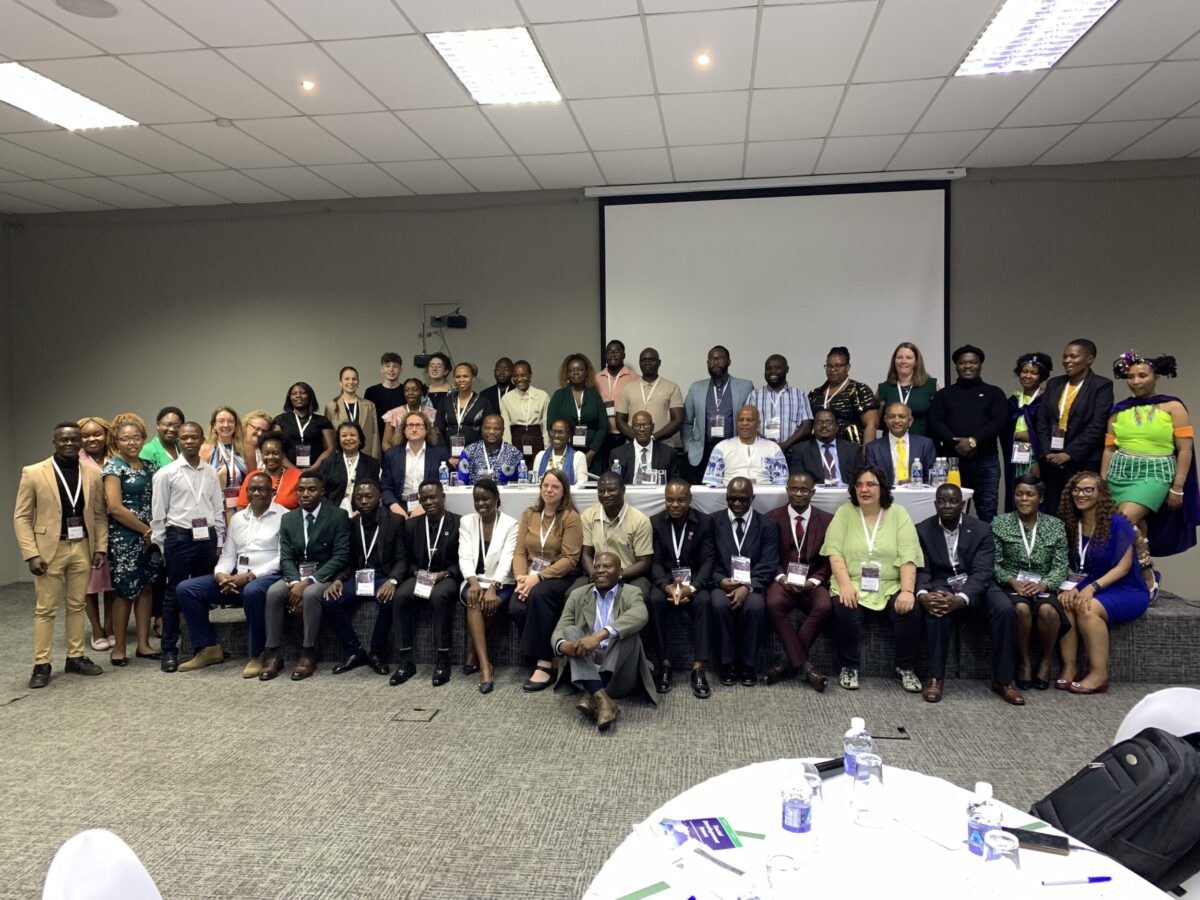
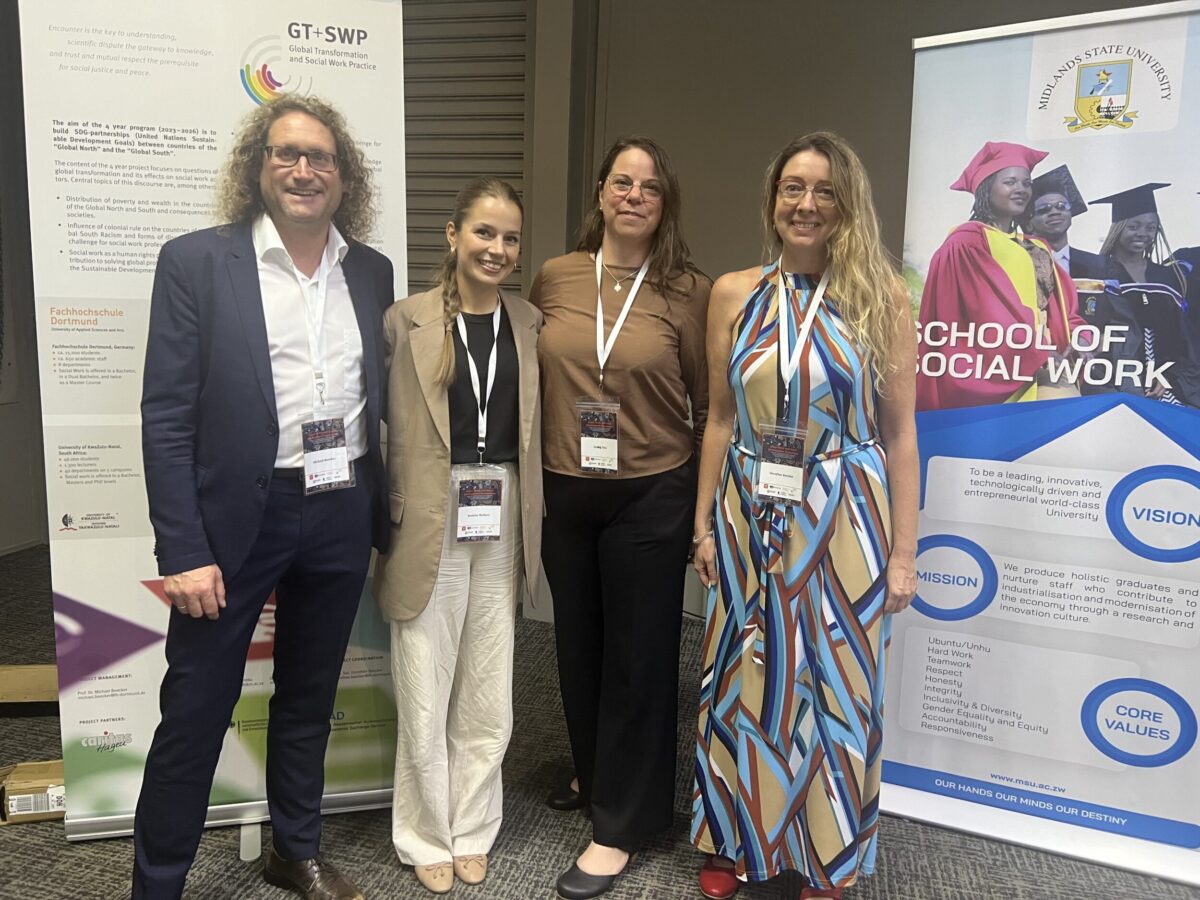
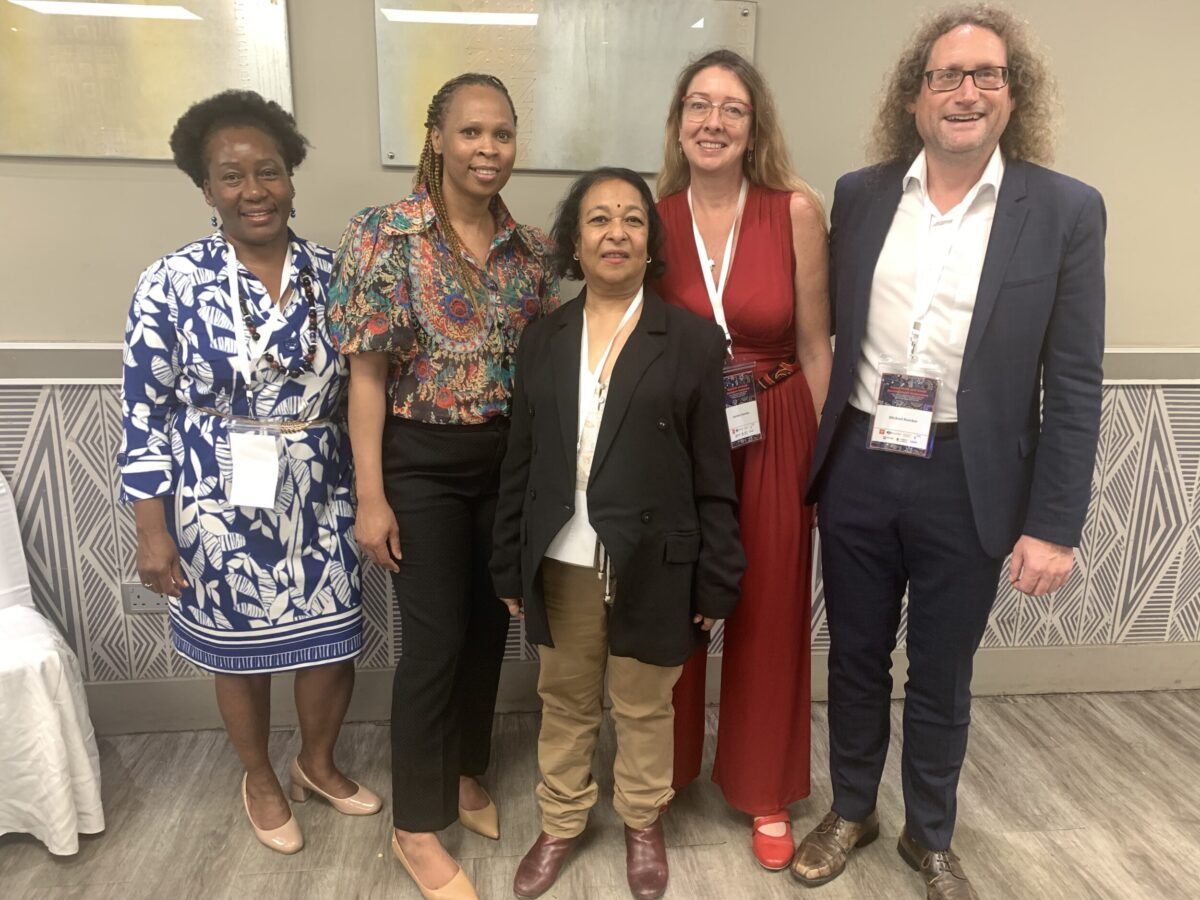
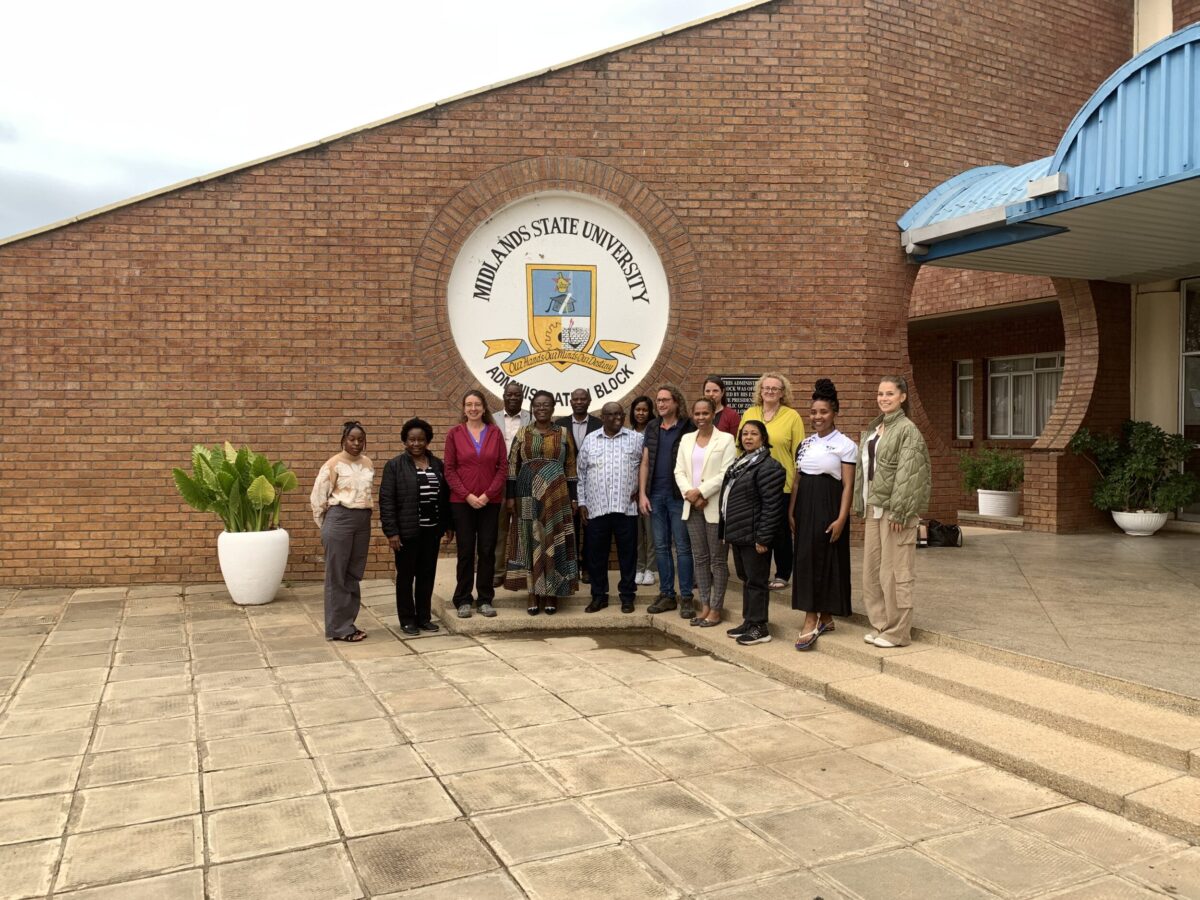
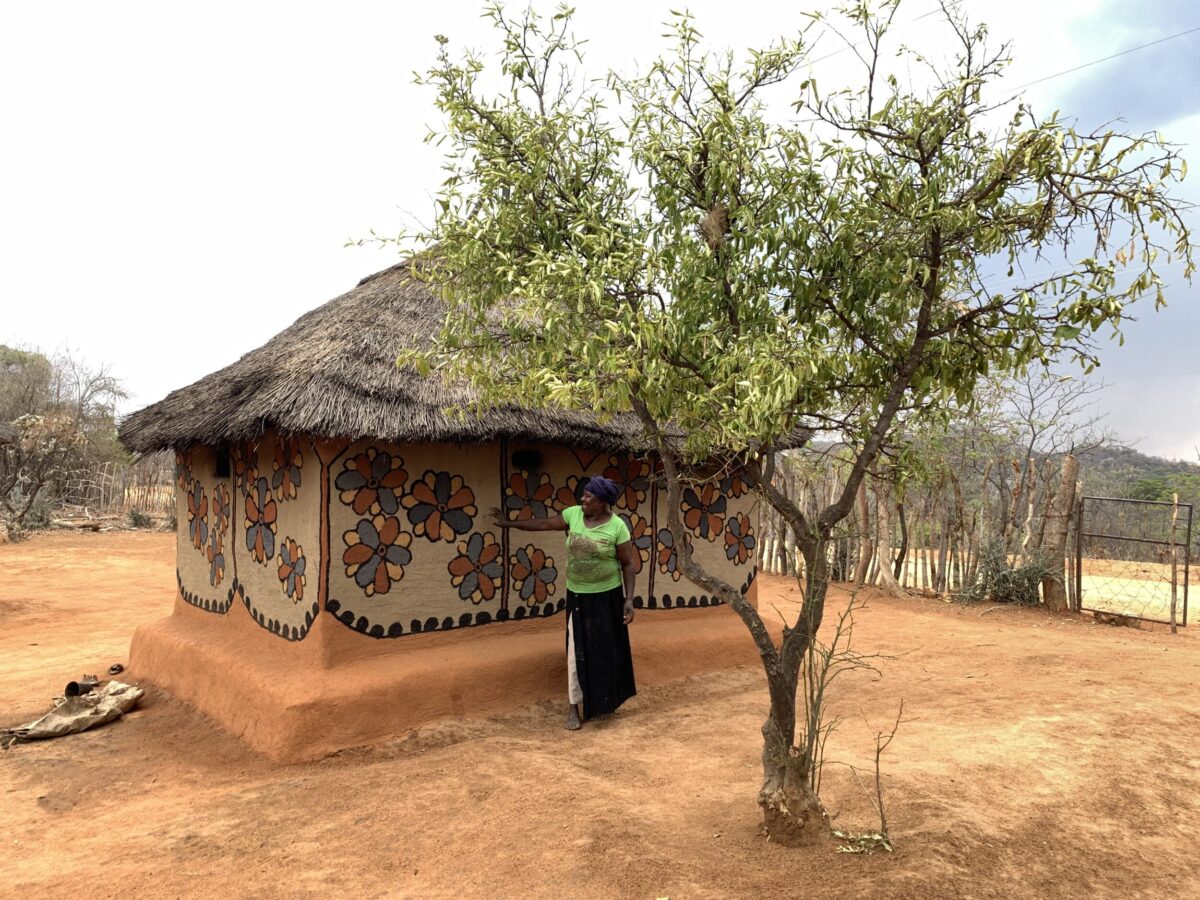
Im Rahmen des vom DAAD geförderten Programms der fachbezogenen Partnerschaften organisierten vier Universitäten und Hochschulen – die Midlands State University , die Fachhochschule Dortmund, die University of Johannesburg und die University of KwaZulu Natal – in Zusammenarbeit mit dem International Consortium on Social Development (ICSD) Africa Branch ein internationales Symposium vom 14. bis zum 18. Oktober 2024. Kern des Programms ist es, Nachwuchswissenschaftler*innen zusammenzubringen und entlang der von der United Nations verabschiedeten Sustainable Development Goals (SDGs) globale Fragen zu diskutieren und Konsequenzen für die Soziale Arbeit zu ziehen. Das diesjährige Symposium setzte den Fokus auf indigene und lokale Wissenssysteme zur Erreichung der Nachhaltigkeitsziele. Dazu trafen sich insgesamt 70 Wissenschaftler*innen aus Ländern des „Globalen Nordens“ und des „Globalen Südens“.
Vertretend für die Fachhochschule Dortmund waren an der Midlands State University (MSU) am Hauptcampus in Gweru und der School of Social Work in Harare der Projektleiter Prof. Dr. Michael Boecker , die Projektkoordinatorin und Diplomsozialarbeiterin Dorothée Boecker , Romina Maillaro , Doktorandin am Fachbereich Angewandte Sozialwissenschaften , und Sina Levenig , Projektmitarbeiterin im Fachbereich. Romina Maillaro hat bei dem Symposium ihr Promotionsthema „Hat die Sozialarbeit ein Gerechtigkeitsproblem? Warum sind die Führungspositionen überwiegend von Männern besetzt,“ vor einem internationalen Fachpublikum vorgetragen.
Entkolonialisierung der Sozialen Arbeit durch afrikanische indigene Wissenssysteme
Bei dem Symposium ging es um die Einflussnahme auf die Entkolonialisierung der Sozialen Arbeit und sozialpolitischer Programme durch afrikanische indigene Wissenssysteme. Afrikanische indigene Wissenssysteme (AIKS) tragen dazu bei, die Existenz von Gesellschaften zu gestalten und zu definieren und bilden die Grundlage für den Glauben und die traditionellen Praktiken der afrikanischen Nationalstaaten. Das Wissen darüber, wie diese Wissenssysteme genutzt werden können, ist jedoch nach wie vor begrenzt. Indigene Wissenssysteme sind für die Länder des „Globalen Südens“ und alle indigenen Völker eine wichtige Voraussetzung für eine nachhaltige Entwicklung. Die Länder des „Globalen Südens“ werden nicht in der Lage sein, ihre Entwicklungsziele zu verwirklichen, ohne sich ihrer indigenen Wissenssysteme bewusst zu werden. Lokales Wissen und Ansätze zur sozialen Entwicklung haben bereits zu positiven Ergebnissen bei der Bekämpfung der Armut und der Abschwächung der negativen Auswirkungen des Klimawandels geführt. Diese Beispiele zeigen, was möglich ist, wenn lokale Kontexte und Denkweisen in die Politik und Praxis der sozialen Entwicklung einfließen. In dem Symposium konnte unter anderem gezeigt werden, wie indigene und lokale Wissenssysteme die vorherrschenden Theorien und Praktiken in Sozialpolitik und der Sozialen Arbeit durchbrechen und gleichzeitig auf die Erreichung der 17 Ziele für nachhaltige Entwicklung hinarbeiten können.
Wichtige Einblicke in die Strukturen der Sozialen Arbeit
Die Vorträge und Diskussionen boten intensive Einblicke in die Frage, wie tief koloniale Einflüsse in die Strukturen der Sozialen Arbeit eingreifen und wie sehr diese Einflüsse die heutige Praxis, das Denken und die Sprache prägen. Besonders eindrücklich war die Auseinandersetzung mit der Frage, wie Soziale Arbeit oft auf westlichen Werten basiert, die weltweit als universell gelten, jedoch kulturelle Diversität und unterschiedliche soziale Realitäten zu wenig berücksichtigen. Eine der zentralen Erkenntnisse aus den Diskussionen war es, dass eine „Dekolonisierung“ der Sozialen Arbeit nicht nur die Anpassung von Konzepten und Modellen voraussetzt, sondern dass es vielmehr einer grundsätzlichen Reflexion kultureller Kontexte und historischer Hintergründe bedarf. Dies betrifft vor allem die Frage, inwiefern „Hilfe“ und „Entwicklung“ auf einem westlichen Verständnis von Fortschritt basieren und wie dies paternalistische Strukturen verstärken kann.

Internationales Symposium an der Midlands State University in Harare”.
Internationale Soziale Arbeit in einer globalen Gesellschaft
Das DAAD-Team der kooperierenden Universitäten hat die Veröffentlichung ihrer Special Issue Ausgabe einer internationalen Fachzeitschrift, dem Journal of Social Development in Africa, vorgestellt. Mit einem eigenen Beitrag adressierten Prof. Dr. Michael Boecker und Dorothée Boecker die Bedeutung Internationaler Sozialer Arbeit als Menschenrechtsprofession in einer globalen Gesellschaft. „In einer zunehmend globalisierten Welt sind wir in vielfältiger Weise miteinander verbunden und in einer komplexen geopolitischen (Un-)Ordnung voneinander abhängig“. Dies gilt auch für diejenigen, die in der Sozialen Arbeit als Menschenrechtsprofession tätig sind. Lange Zeit herrschte die Vorstellung, dass Sozialarbeiter*innen ausschließlich auf nationaler Ebene agieren müssen und dass der Blick über das eigene Land hinaus zwar erfrischend sein kann, aber nicht zwingend notwendig ist. Heute wissen wir, wie wichtig internationale Beziehungen, Netzwerke und wissenschaftlicher Austausch sind. Geopolitische Entscheidungen betreffen die Soziale Arbeit und ihre Zielgruppen oft in ihrem Kern. Existenzielle Armut und Arbeitslosigkeit in Ländern des globalen Südens führen zu Flucht und Migration in die Länder des „Globalen Nordens“. Krisen wie Kriege oder Naturkatastrophen haben vielfältige Auswirkungen auf globale Wertschöpfungsketten. Die ungleiche Verteilung von Armut und Reichtum führt zu asymmetrischen Machtverhältnissen, die nicht zuletzt das Erbe von Kolonial- und Apartheideinflüssen sind. Umso wichtiger sind die Sustainable Development Goals (SDGs) der Vereinten Nationen.
In April, six prospective doctoral students were at the University of KwaZulu-Natal in Durban to conduct joint research, learn and further develop their networks.
The stay was prepared and designed for an entire month. A three-day symposium on the topic of “Research and Promotion” was also held during the month. They were able to be on site to consolidate the existing network with NGOs and acquire new cooperation partners.
The consistent inclusion of SDG-relevant discourses in teaching, research and society must be anchored more firmly and made more visible, particularly through development cooperation projects. Stakeholders from science, civil society, business and politics must be consistently involved in this.
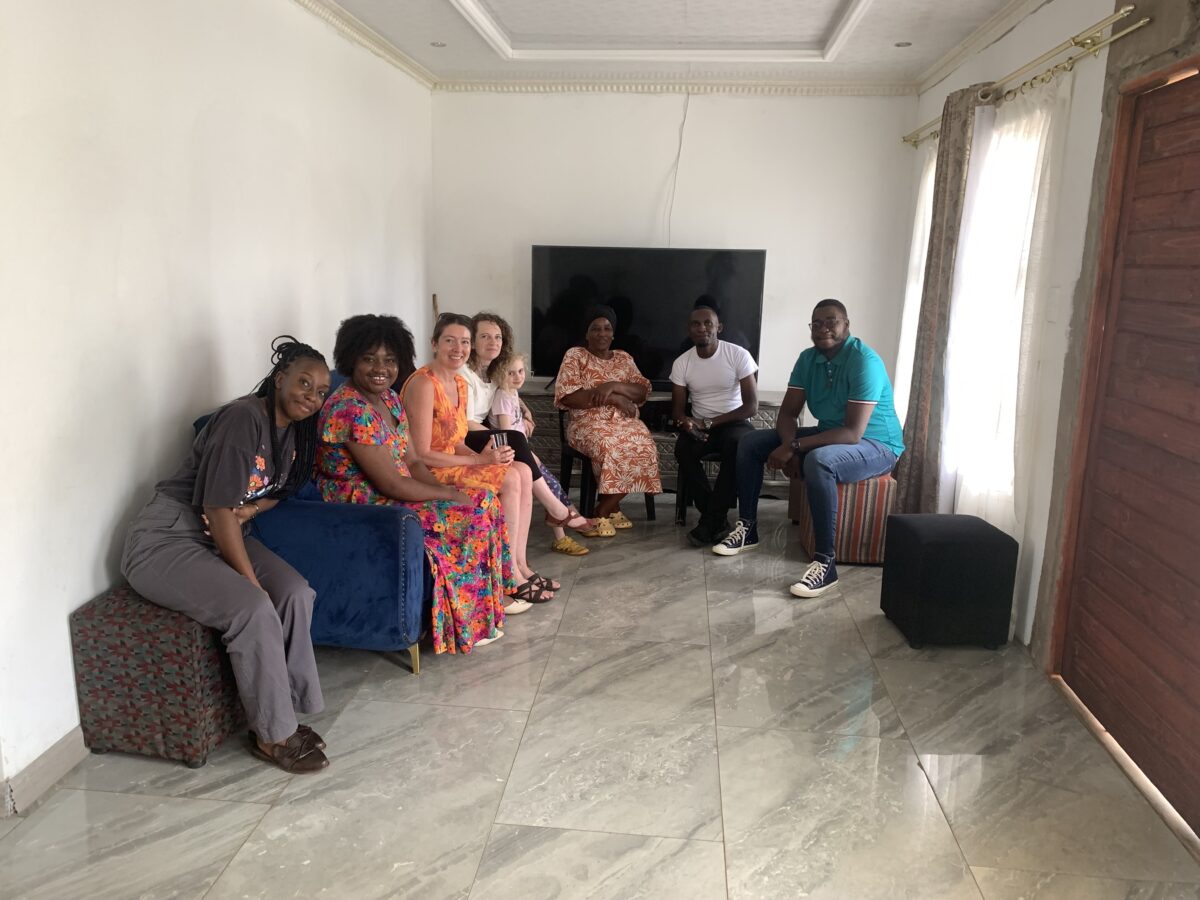
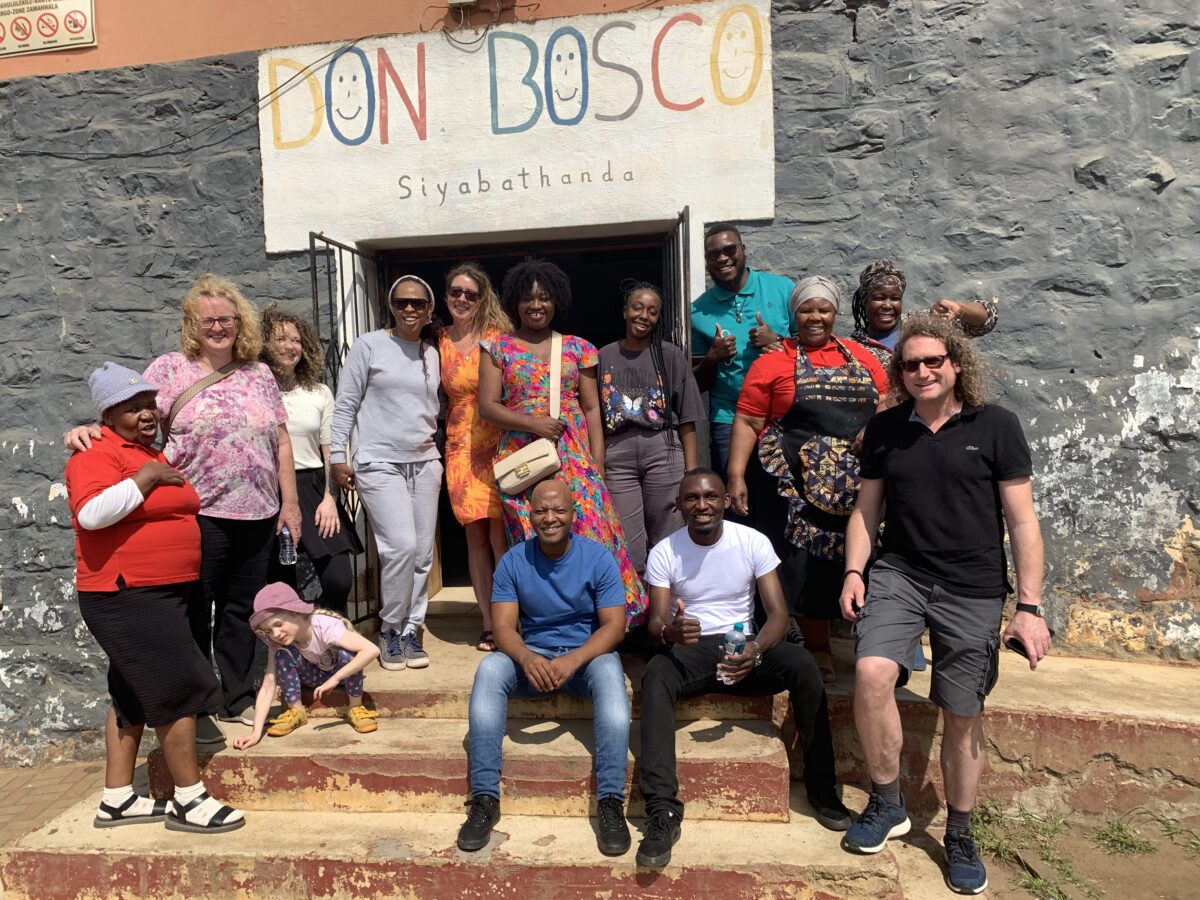
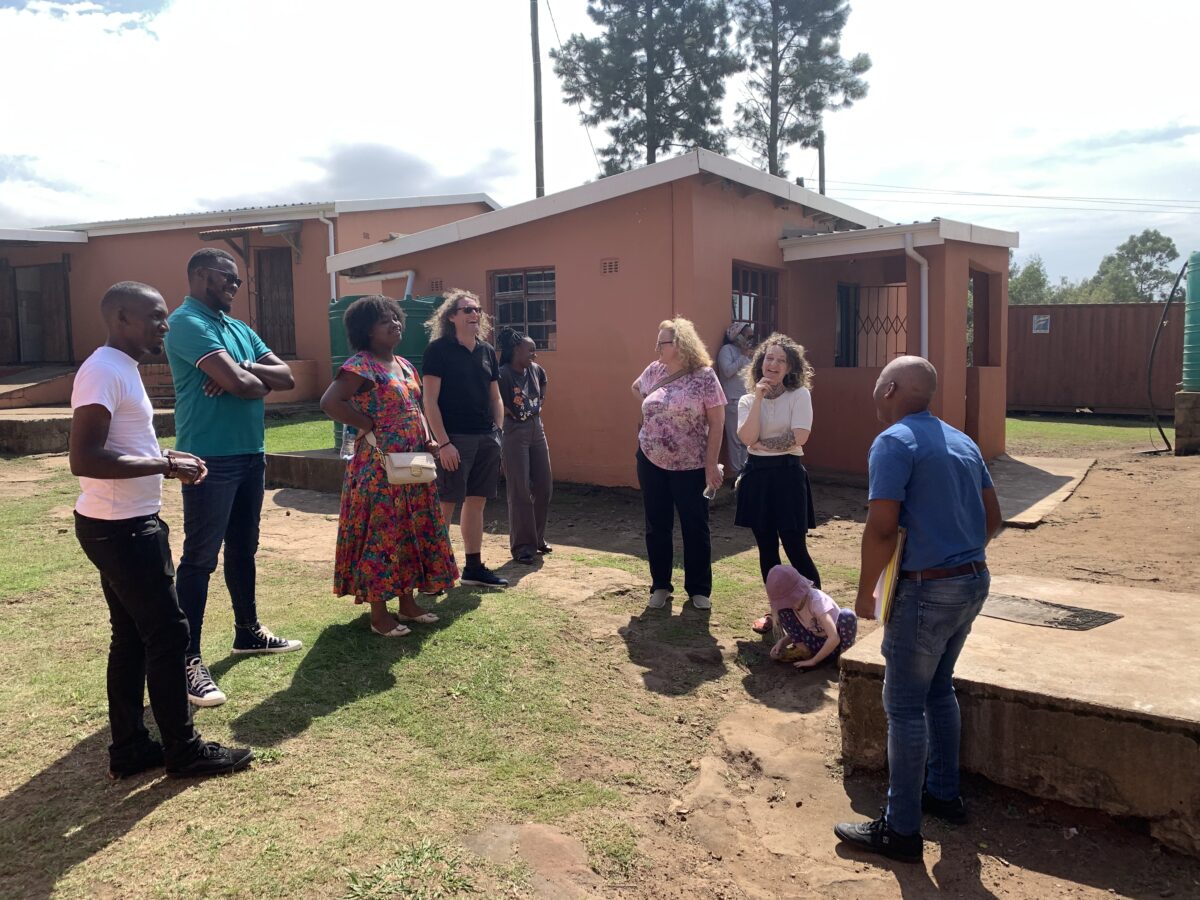
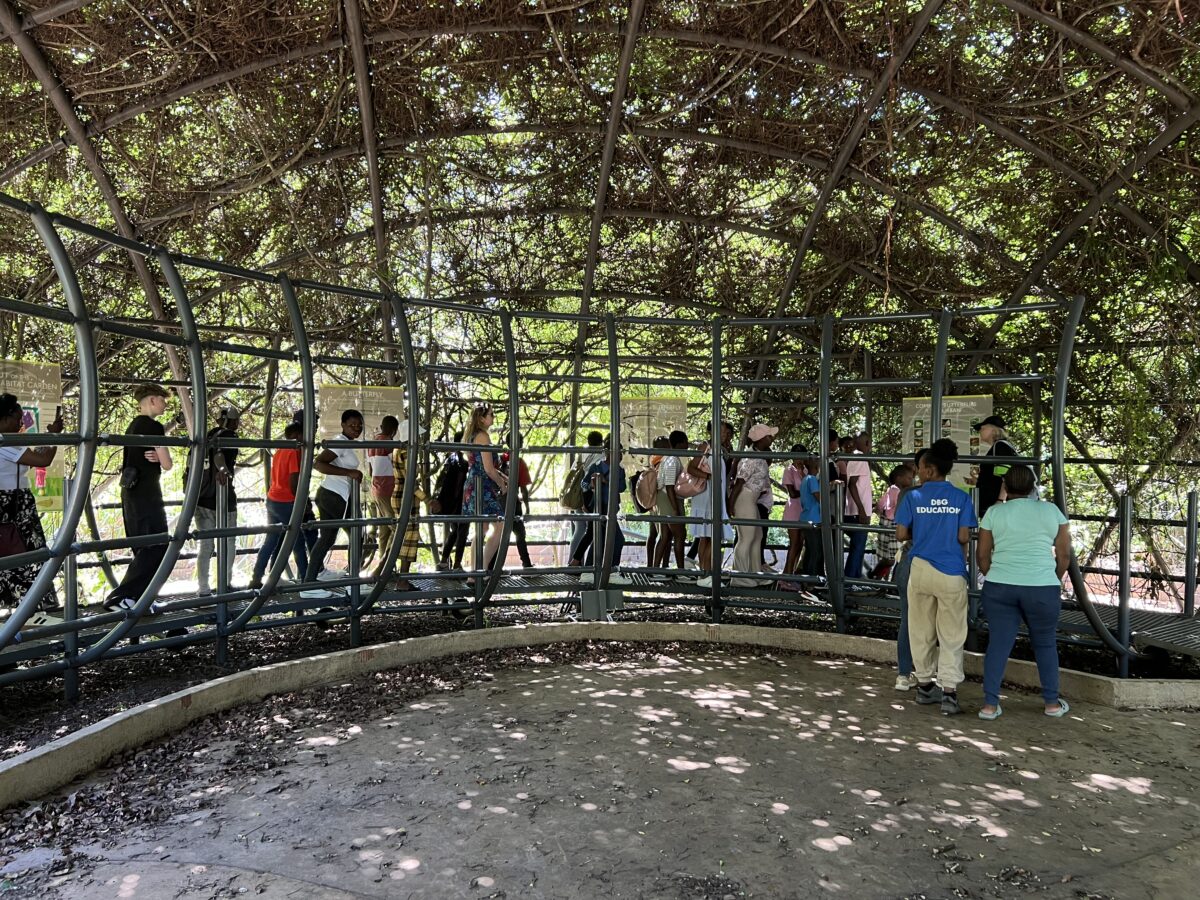
How does the global transformation affect social work and how should those involved in the profession deal with it? To answer these questions, the program has set itself the goal of forming “SDG partnerships”: These are collaborations between universities in the Global North and the Global South based on the “17 Sustainable Development Goals” (SDGs) proclaimed by the UN.
Prof. Dr. Michael Boecker is leading the cooperation with three other universities on behalf of Dortmund University of Applied Sciences and Arts: the University of KwaZulu-Natal (UKZN), the University of Johannesburg (UJ), also in South Africa, and Midland State University (MSU) in Harare, Zimbabwe. The project is coordinated by social worker Dorothée Boecker.
In addition to the annual congress, the universities organize digital workshops and a regular exchange of doctoral students, which the universities take turns hosting.
Four doctoral students from South Africa and Zimbabwe visited Dortmund UAS at the end of 2023. During a stay of several weeks, they took part in numerous workshops, symposia and other events, visited exhibitions and some neighboring cities such as Cologne and Bonn.
In the Nordstadtgalerie Dortmund, the researchers presented their doctoral thesis topics, covering a diverse range of scientific issues.
The event at the Nordstadtgalerie Dortmund provided a platform for intellectual exchange and underlined the importance of these doctoral projects in shaping the future discourse and academic landscape.
“These studies promise to contribute valuable insights to their respective fields and promote collaboration and the advancement of knowledge,” acknowledged Michael Boecker. The exchange “once again sharpened the focus on global issues and challenges as well as the opportunities and risks of development cooperation as a possible reproduction of postcolonial inequalities,” emphasizes Dorothée Boecker. Global challenges require global, joint efforts. All social actors – business, science, organized civil society, municipalities – should make a contribution to achieving the Sustainable Development Goals.
Development partnerships with private companies should be encouraged and promoted. All cooperation partners should be empowered to achieve their development goals with their own financial resources and be able to track progress independently. Public spending in the countries should be geared towards sustainability. The structure of the international system (financial system, world market, knowledge and technology) must be geared towards ensuring that all people in all countries benefit from it and have equal access to it. Everyone should make a contribution to achieving the SDGs and fulfill their international responsibility through professional exchange, partnership work and public relations.
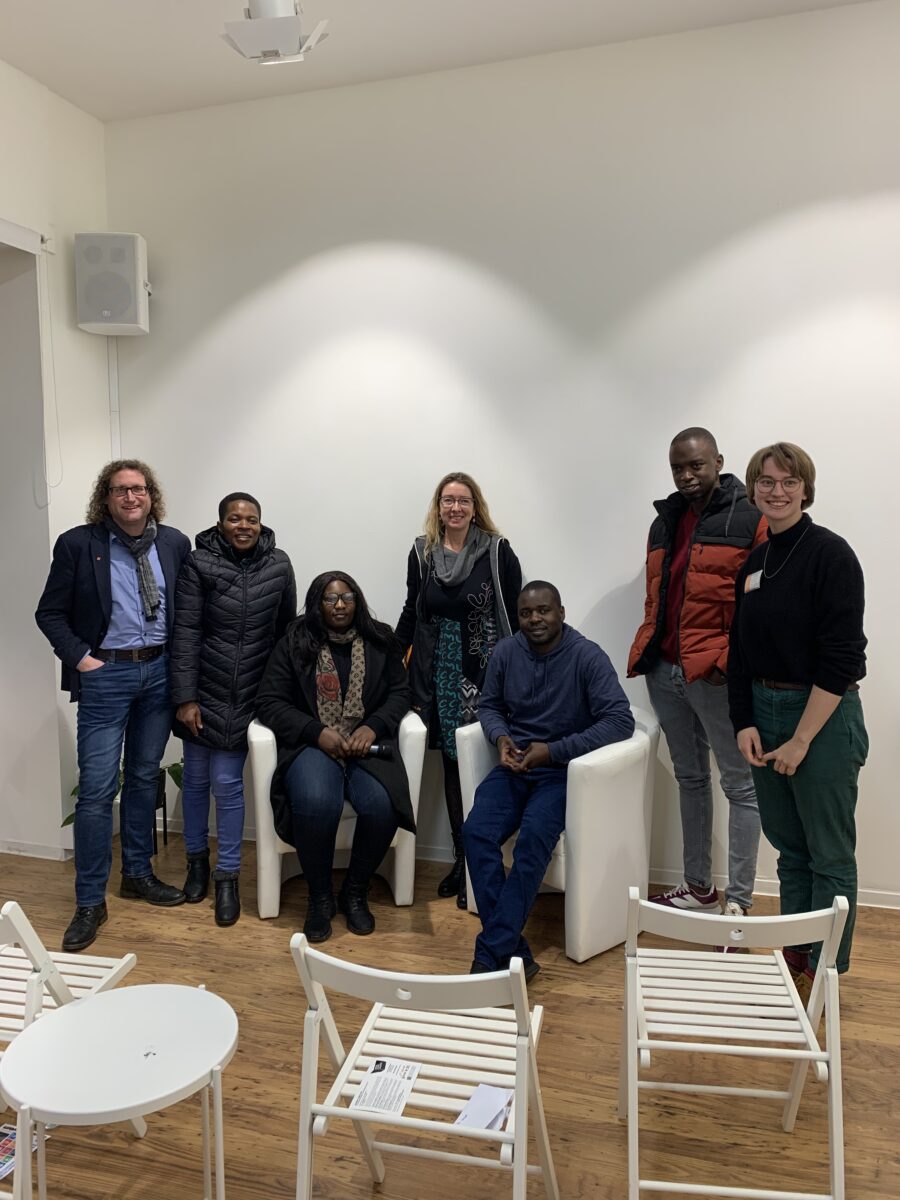
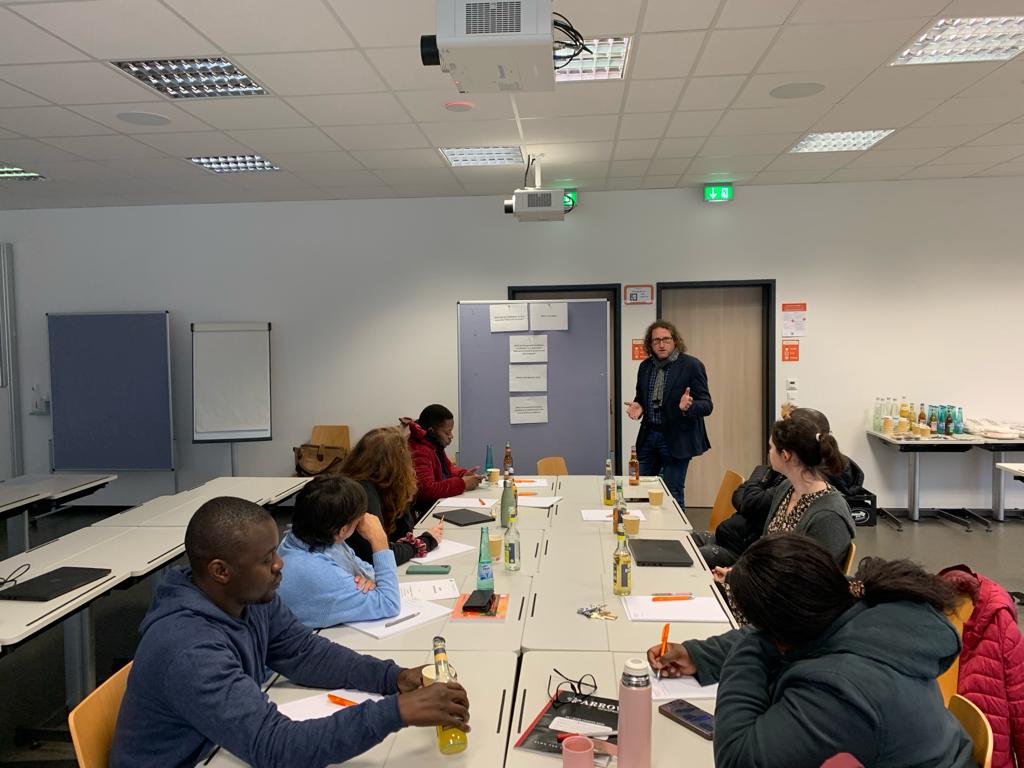
In July 2023, a symposium was held at the university in Johannesburg, South Africa. This cooperation, funded by the DAAD, is about social work. About globalization. About the SDGs, the UN’s Sustainable Development Goals to promote the sustainable development of humanity, and the question of what these SDGs mean for social work.
It’s about people in Johannesburg and Durban (South Africa), people in Harare (Zimbabwe) and people in Dortmund. What they can learn from each other. What prejudices they harbor and which of them can be changed and how.
It’s about how these people can advance social work together. And how a temporarily funded cooperation project can become something permanent that the next generations of academics and social workers can continue. GT+SWP was able to enable students from South Africa, Zimbabwe and Germany to take part thanks to your support. It was a very moving exchange that also got the ball rolling. There were also visitors from Lesotho, Swaziland, Botswana and Jamaica.
The main topic of the congress was the question: What do the SDGs mean for social work? “The Sustainable Development Goals of the United Nations are thus more than just a compass in confused times or a playground for transformation research,” emphasized Michael Boecker in his welcoming speech at the congress. “The extent to which they are implemented will have a decisive impact on the lives of further generations and affect humanity as a whole.” The word “decisive” is underlined in his speech transcript.
The UN published the SDGs in 2015. The first three are “Zero Poverty”, “Zero Hunger” and “Good Health and Well-being”, and this is meant globally: not a single person should have to suffer from poverty, hunger and the unhealthy effects of civilization. According to the UN, the SDGs are “a global plan to promote sustainable peace and prosperity and to protect our planet”. You could also say: the biggest and most noble goal that humanity has ever set itself.
According to the UN, all countries have been working on implementing the plan since 2016. The target date: 2030.
To mark the SDGs, the International Social Work Association has set out four pillars to guide all efforts. One of these pillars is: social cohesion and the power of relationships.
We focus on SDG 17 and our aim is to strengthen means of implementation and breathe new life into the Global Partnership for Sustainable Development.
